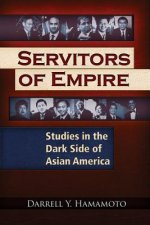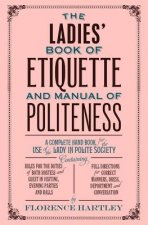
Kód: 04874834
Japanese Assimilation Policies in Colonial Korea, 1910-1945
Autor Mark Caprio
During Japan's colonial rule over Korea from 1910 until the end of World War II, Japan adopted assimilation as its administrative policy but was unable to integrate the Korean people as Japanese. In "Japanese Assimilation Policies ... celý popis
- Jazyk:
 Angličtina
Angličtina - Vazba: Brožovaná
- Počet stran: 320
Nakladatelství: University of Washington Press, 2009
- Více informací o knize

1088 Kč

Skladem u dodavatele v malém množství
Odesíláme za 12-17 dnů
Potřebujete více kusů?Máte-li zájem o více kusů, prověřte, prosím, nejprve dostupnost titulu na naši zákaznické podpoře.
Přidat mezi přání
Mohlo by se vám také líbit
-

Alan Titchmarsh How to Garden: Garden Design
357 Kč -

Pioneers 4 Life
283 Kč -

Seeking Mahadevi
3136 Kč -

Moral Wisdom and Good Lives
1326 Kč -

Citizenship in a Fragile World
4889 Kč -

Marketing of Terrorism. Analysing the Use of Social Media by ISIS
2118 Kč -

F*** My Wife!: Erotic Cuckold Stories from a Real Married Husband and Wife into The Swinging Scene
232 Kč
Darujte tuto knihu ještě dnes
- Objednejte knihu a zvolte Zaslat jako dárek.
- Obratem obdržíte darovací poukaz na knihu, který můžete ihned předat obdarovanému.
- Knihu zašleme na adresu obdarovaného, o nic se nestaráte.
Více informací o knize Japanese Assimilation Policies in Colonial Korea, 1910-1945
Nákupem získáte 109 bodů
 Anotace knihy
Anotace knihy
During Japan's colonial rule over Korea from 1910 until the end of World War II, Japan adopted assimilation as its administrative policy but was unable to integrate the Korean people as Japanese. In "Japanese Assimilation Policies in Colonial Korea, 1910-1945", Mark Caprio traces the history of this policy to determine why Japan failed to attain its stated goals. In his search through government documents, personal travel accounts, diary entries, published essays, newspaper editorials, and fictional works, Caprio uncovers a rich discussion regarding the policy's potential but little evidence of practical policy initiatives designed to realize Korean assimilation. In Korea, segregation was built into everyday life. Japanese and Koreans lived in virtually segregated communities. The colonial education system, unwilling to intermix large numbers of Koreans with Japanese, segregated students into two separate and unequal systems. As a result, inferior education blocked the social advancement of Koreans. Intermarriage between Koreans and Japanese was comparatively rare, while many who did marry found themselves ostracized from Korea-based Japanese society. Japan reinforced the second-class status of Koreans by limiting employment opportunities and denying representation in the political institutions Japan constructed for Korea. Japanese colonial policy during World War II enabled some improvement, as Koreans were promoted in government and factory positions to replace Japanese recalled home or sent to the battlefront. "Japanese Assimilation Policies in Korea, 1910-1945" also examines the diverse views held by Koreans regarding Japan's colonial policy. Mark Caprio is a professor in the Department of Intercultural Communications, Rikkyo University, Tokyo, Japan.
 Parametry knihy
Parametry knihy
Zařazení knihy Knihy v angličtině Society & social sciences Society & culture: general Social groups
1088 Kč
- Plný název: Japanese Assimilation Policies in Colonial Korea, 1910-1945
- Autor: Mark Caprio
- Jazyk:
 Angličtina
Angličtina - Vazba: Brožovaná
- Počet stran: 320
- EAN: 9780295989013
- ISBN: 0295989017
- ID: 04874834
- Nakladatelství: University of Washington Press
- Hmotnost: 494 g
- Rozměry: 227 × 153 × 21 mm
- Datum vydání: 27. October 2009
Oblíbené z jiného soudku
-

Women Who Run with the Wolves
239 Kč -

Freedom Writers Diary
275 Kč -

Think Like a Monk
441 Kč -

Orientalism
306 Kč -

How Europe Underdeveloped Africa
531 Kč -

Desert Flower
286 Kč -

Why Does He Do That?
401 Kč -

Letters to a Young Muslim
303 Kč -

Eros and Mysteries of Love
407 Kč -

Life After Darkness
512 Kč -

Puer Tea
772 Kč -

Womanhood
605 Kč -

JFK - 9/11
734 Kč -

Complete Book of Pilates for Men
447 Kč -

Gypsy Identities 1500-2000
1641 Kč -

Servitors of Empire
477 Kč -

Colloquial Yiddish
1683 Kč -

Sword of No-sword
646 Kč -

Gerotranscendence
3473 Kč -

Northwest Coast Indian Art
702 Kč -

Qur'an
811 Kč -

When God Was A Woman
498 Kč -

The Mastery of Love
306 Kč -

Vintage Menswear
435 Kč -

Who Cooked the Last Supper?
429 Kč -

Women Who Run With The Wolves
410 Kč -

The Way of Men
332 Kč -

The Autobiography of Malcolm X
222 Kč -

Second Sex
410 Kč -

Goddesses in Everywoman
303 Kč -

Talking with Female Serial Killers - A chilling study of the most evil women in the world
276 Kč -

Intellectuals and Society
537 Kč -

Women in the Qur'an
493 Kč -

Erotic Bondage Book
364 Kč -

Zami
276 Kč -

Nine Years among the Indians, 1870-1879
620 Kč -

Dark Emu
410 Kč -

Childhood and Society
392 Kč -

Happy City
303 Kč -

The Male Nude
481 Kč -

The Bell Curve
464 Kč -

We Should All Be Feminists
213 Kč -

Empire of the Summer Moon
357 Kč -

Radium Girls
276 Kč -

Dance of Anger
276 Kč -

Beauty Myth
357 Kč -

Muqaddimah
541 Kč -

TROUBLEMAKER
363 Kč -

Ladies' Book of Etiquette and Manual of Politeness
306 Kč
Osobní odběr Praha, Brno a 12903 dalších
Copyright ©2008-24 nejlevnejsi-knihy.cz Všechna práva vyhrazenaSoukromíCookies


 Vrácení do měsíce
Vrácení do měsíce 571 999 099 (8-15.30h)
571 999 099 (8-15.30h)